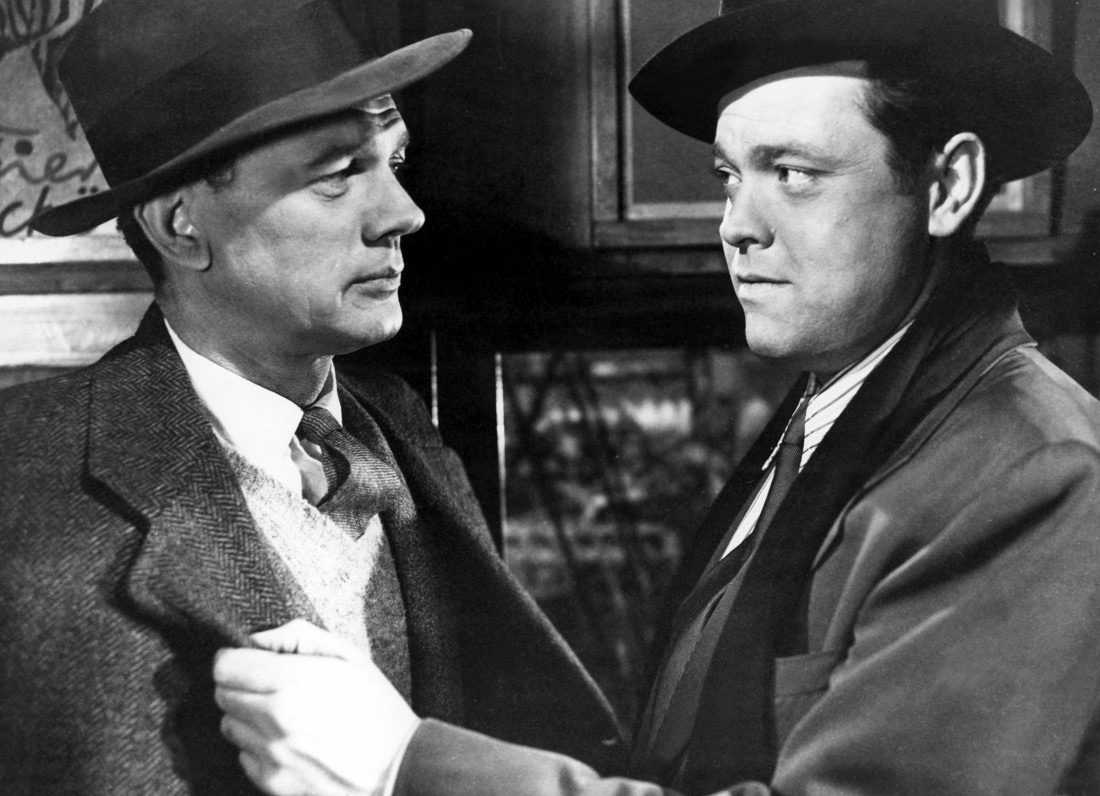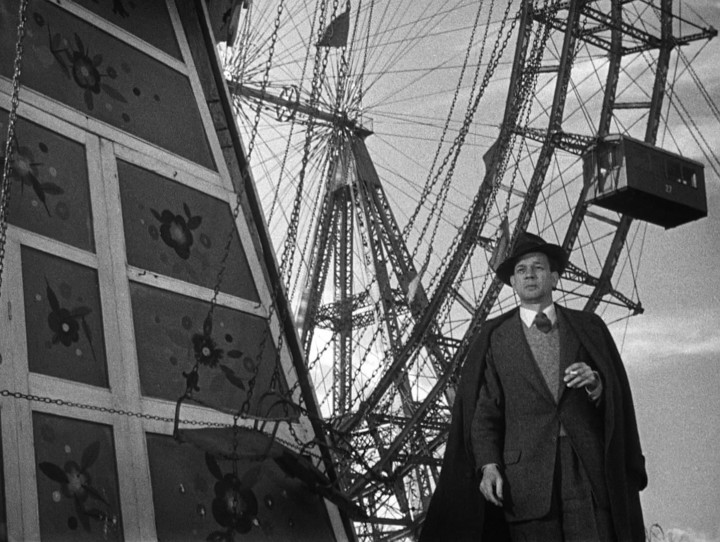The story’s about a third-rate American writer of bad Western novels, Holly Martins, who lands in Vienna broke, but in hopes of a job from an old friend, who has inconveniently been killed a few days earlier. Martins arrives just in time for the funeral—and finds himself suspicious about his friend’s death, which plunges him into a very tangled web of deceit and more than a little danger. As pure entertainment, the film scores on every level, but never perhaps more than in Cotten’s famous scene with Welles on the giant Ferris wheel (a scene for which Welles wrote his own dialogue). If you’ve never seen the film (and there must be a few out there who haven’t), it’s an essential. If you have seen it, it’s worth another viewing (no matter how many you’ve had). And you can sit there and marvel at the studio fighting Reed tooth and nail over his determination that the film’s score should be nothing but Anton Karas’ zither music. Fortunately for us all, Reed won. Then again, “The Third Man Theme” caused a brief mania for zither music when it became a hit record, which some may view as a very mixed blessing.
Classic World Cinema by Courtyard Gallery will present The Third Man Friday, March 13, at 8 p.m. at Phil Mechanic Studios, 109 Roberts St., River Arts District (upstairs in the Railroad Library). Info: 273-3332, www.ashevillecourtyard.com





Before you comment
The comments section is here to provide a platform for civil dialogue on the issues we face together as a local community. Xpress is committed to offering this platform for all voices, but when the tone of the discussion gets nasty or strays off topic, we believe many people choose not to participate. Xpress editors are determined to moderate comments to ensure a constructive interchange is maintained. All comments judged not to be in keeping with the spirit of civil discourse will be removed and repeat violators will be banned. See here for our terms of service. Thank you for being part of this effort to promote respectful discussion.